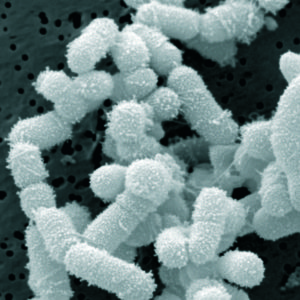 New research has found that low vitamin D levels among older adults is associated with accelerated cognitive decline and impaired performance (particularly in areas of memory and executive function). The next research in this area will have to look at whether vitamin D supplementation will change (slow down) the decline. Please note that it is widely accepted that an average daily intake of 1000 IU of D3 daily is safe. The best source of vitamin D is sunlight. From Science Daily:
New research has found that low vitamin D levels among older adults is associated with accelerated cognitive decline and impaired performance (particularly in areas of memory and executive function). The next research in this area will have to look at whether vitamin D supplementation will change (slow down) the decline. Please note that it is widely accepted that an average daily intake of 1000 IU of D3 daily is safe. The best source of vitamin D is sunlight. From Science Daily:
Low vitamin D among elderly associated with decline in cognition, dementia
Vitamin D insufficiency among the elderly is highly correlated with accelerated cognitive decline and impaired performance, particularly in domains such as memory loss that are associated with Alzheimer's disease and dementia, researchers with the UC Davis Alzheimer's Disease Center and Rutgers University have found. The effect is "substantial," with individuals with low vitamin D declining at a rate three times faster than those with adequate vitamin D levels.
The researchers said their findings amplify the importance of identifying vitamin D insufficiency among the elderly, particularly high-risk groups such as African-Americans and Hispanics, who are less able to absorb the nutrient from its most plentiful source: sunshine. Among those groups and other darker-skinned individuals, low vitamin D should be considered a risk factor for dementia, they said. "Independent of race or ethnicity, baseline cognitive abilities and a host of other risk factors, vitamin D insufficiency was associated with significantly faster declines in both episodic memory and executive function performance," said Joshua Miller...
The large, longitudinal study was conducted in nearly 400 racially and ethnically diverse men and women in Northern California participating in longitudinal research at the Alzheimer's Disease Center in Sacramento, Calif. Fifty percent of participants were Caucasian and 50 percent were African-American or Hispanic. The participants had a mean age of 76 and were either cognitively normal, had mild cognitive impairment, or dementia.The participants' serum vitamin D status was measured at the beginning of the study.... Overall, 26 percent were deficient and 35 percent were insufficient. Among Caucasians, 54 percent had low vitamin D, compared with 70 percent of African-Americans and Hispanics.
Over five years of follow-up, vitamin D deficient individuals experienced cognitive declines that were two-to-three times faster than those with adequate serum vitamin D levels. In other words it took only two years for the deficient individuals to decline as much as their counterparts with adequate Vitamin D declined during the five-year follow-up period.
Exposing the skin to sunlight is the major source of vitamin D. Racial and some ethnic minorities are at greater risk of low vitamin D because the higher concentration of melanin that makes their skin darker -- and protects against skin cancer in sunny climates -- also inhibits synthesis of vitamin D. Diet is the other major source of vitamin D. Dietary vitamin D is obtained particularly through dairy consumption. The intake of dairy products is especially low among minority groups, with only 6.5 percent of African-Americans and 11 percent of Mexican-Americans nationwide consuming the recommended three daily servings of dairy products, the study says.

 The following studies reinforce the advice that people should eat a variety of fruits and vegetables, as well as olive oil (part of the Mediterranean diet).
The following studies reinforce the advice that people should eat a variety of fruits and vegetables, as well as olive oil (part of the Mediterranean diet). The issue of overdiagnosis and overtreatment rears its head again - this time in a study looking at thyroid cancer detection and death rates. The death rate from thyroid cancer has stayed the same since 1935, as has the number of thyroid cancers presenting with symptoms of thyroid cancer. But...the number of new cases of silent thyroid cancer -- the kind where patients have no symptoms -- almost quadrupled in recent years, and these are the tiny cancers that probably won't cause a problem in the person's lifetime. The researchers then discuss how NOT to find these tiny silent thyroid cancers, so as to avoid overdiagnosis and the harms of overtreatment. From Science Daily:
The issue of overdiagnosis and overtreatment rears its head again - this time in a study looking at thyroid cancer detection and death rates. The death rate from thyroid cancer has stayed the same since 1935, as has the number of thyroid cancers presenting with symptoms of thyroid cancer. But...the number of new cases of silent thyroid cancer -- the kind where patients have no symptoms -- almost quadrupled in recent years, and these are the tiny cancers that probably won't cause a problem in the person's lifetime. The researchers then discuss how NOT to find these tiny silent thyroid cancers, so as to avoid overdiagnosis and the harms of overtreatment. From Science Daily: Thyroid gland. Credit: Mayo Foundation for Medical Education and Research
Thyroid gland. Credit: Mayo Foundation for Medical Education and Research The following article posted average life expectancies for both men and women in countries throughout the world. But what was interesting is that it also gave the average years that a person would be healthy and also unhealthy (which is typically the last years of life). And no matter which country one looks at and the average life expectancy of men and women, it turns out that on average people spend about one eighth of their life in a disabled or unhealthy state. Or between 10 to 20% of their life disabled or unhealthy.
The following article posted average life expectancies for both men and women in countries throughout the world. But what was interesting is that it also gave the average years that a person would be healthy and also unhealthy (which is typically the last years of life). And no matter which country one looks at and the average life expectancy of men and women, it turns out that on average people spend about one eighth of their life in a disabled or unhealthy state. Or between 10 to 20% of their life disabled or unhealthy. [UPDATE: I added an Oct. 2018 update to the post
[UPDATE: I added an Oct. 2018 update to the post  Another article from results of the crowdsourced study in which household dust samples were sent to researchers at the University of Colorado from approximately 1200 homes across the United States. Some findings after the dust was analyzed: differences were found in the dust of households that were occupied by more males than females and vice versa, indoor fungi mainly comes from the outside and varies with the geographical location of the house, bacteria is determined by the
Another article from results of the crowdsourced study in which household dust samples were sent to researchers at the University of Colorado from approximately 1200 homes across the United States. Some findings after the dust was analyzed: differences were found in the dust of households that were occupied by more males than females and vice versa, indoor fungi mainly comes from the outside and varies with the geographical location of the house, bacteria is determined by the  This is a nice study showing cause and effect: 6 hours of sleep or less at night lowers the body's resistance so that the person is more likely to catch a cold virus. From Science Daily:
This is a nice study showing cause and effect: 6 hours of sleep or less at night lowers the body's resistance so that the person is more likely to catch a cold virus. From Science Daily: